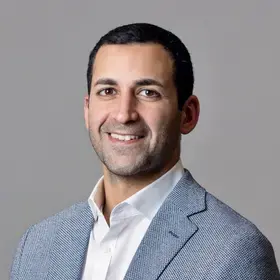Julia Cunico Gardner (’13SPS, Negotiation and Conflict Resolution) has more than a decade of experience working with global leaders in Asia, Europe, and North America. She has provided mentorship on subjects ranging from economics to leadership development. She has previously worked at the Korea Economic Institute in Washington, D.C., as part of the team of Nobel Laureate Joseph Stiglitz at Columbia Business School, and most recently as an Admissions Outreach and Selection Officer with the Schwarzman Scholars Program. With nearly a year under her belt as the Director of Corporate Partnerships at Nest, Gardner gave us an update on her career.
What initially attracted you to the Negotiation and Conflict Resolution program at Columbia University?
I was initially attracted to the program because of the flexibility in scheduling and in the application of the coursework. I was working full-time at Columbia Business School and wanted to further my education simultaneously. With an unpredictable work and travel schedule, I needed to be in a program that would have a majority of classes on evenings and weekends and the opportunity to overload some semesters that were more convenient than others. More importantly, being skilled in negotiation and conflict resolution can be used in a variety of career paths and, since I was still sorting through my next steps, I liked the fact that I could use the degree in pursuit of many different goals.
What type of skills were you able to build and improve on through the program?
The best part of the degree program is the relevance and applicability of the skills I learned. The NECR program helps students understand who they are and who they bring to the table. Fundamentally, in order to negotiate or intervene in any sort of conflict, one must not only know his/her own biases and triggers but also be able to deftly navigate the biases and triggers of others. This requires significant introspection and communication skills-building. My active listening, mirroring, and reflection skills increased throughout my time in the program and I became better tuned into others to identify their needs. The experience also put my time management and organizational skills to the test!
Tell us about your current position.
While Schwarzman Scholars is a large, international scholarship program, Nest is a small non-profit that provides capacity building support for artisan businesses around the world and encourages demand for artisan products. We work with large international brands who source products from artisans to help them build strong relationships and we employ an Ethical Handcraft program that brings compliance and transparency to these ‘last mile’ workers in homes and small workshops. My role is to work with the brands to facilitate their use of Nest services and garner their advice and counsel through management of the Nest Steering Committee of brand partners. At first glance my work at Schwarzman Scholars and at Nest seem unrelated, but fundamentally they rely on the ability to foster relationships and communicate effectively.
How have these skills helped you succeed at your job?
When a brand comes to us with a supply chain request, my role is to think creatively, listen actively, and provide a solution/recommend an appropriate service. We look to build win-win-wins; to create outcomes that provide support to artisan businesses, help brands with their bottom line, and generate income for Nest. In class, we were taught how to listen and ask questions to dive beneath the surface and identify what is really going on. When you know what people need without them having to say it, you can provide a solution that makes you an invaluable service provider. NECR also made me a better mediator and facilitator. Throughout my career I have worked with different kinds of people and resolved interpersonal conflicts. The program gave me the language to articulate what I’m feeling, to separate the people from the problem, and to encourage team-generated solutions.
In every workplace, there are communication challenges because people deliver and receive messages differently. The skills I learned in the NECR program help me to pay attention to all of these challenges and be more considerate in how I communicate. I’m more adept at understanding my own needs so it is easier to ask for help when I need it or to take on professional development opportunities. In all of these areas, I’m a better team leader and team member with honed empathy and listening skills.
Was the format of the program (e.g. full-time, part-time, mostly or fully online, etc.) helpful? Yes! The program’s flexibility was the reason I was able to do it. I will remain forever grateful for the supportive faculty and administration that allowed me to make up what I missed during work travel, and my office’s flexibility in supporting my pursuit of the degree.
What advice would you give to students who will graduate soon?
Students who are graduating and looking for work now should focus on their communication and empathy. Each of these are core competencies that can be perfected in the NECR program and are essential to a world in which everyone is facing seemingly insurmountable obstacles. We need to be patient with ourselves and our families, but also with our teammates and clients. We need to communicate clearly via virtual channels because we cannot rely on the intimacy of being together. Agility and grit will keep you from being stuck professionally, but it’s the interpersonal relationships that, if fostered during this exceptional time, will make you an asset to your team and give you the strength to handle whatever challenges you face with grace and kindness. Those attributes are what the world needs most, regardless of the career path you choose.
Learn more about the Master of Science in Negotiation & Conflict Resolution at the Columbia University School of Professional Studies.


